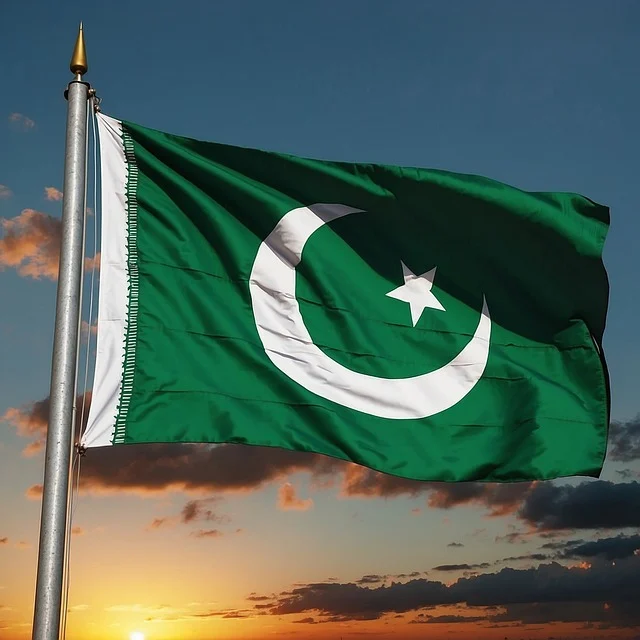Pakistan, a country rich in culture and history, is facing many problems today. The country faces complex challenges ranging from political unrest to economic instability to energy challenges. This article examines the current situation in Pakistan, looks at the root causes of these issues, and identifies some ways in which they can be fixed for a better future.

Challenges and Opportunities
Political instability
Pakistan’s political environment is unstable and government changes are frequent. Foreign investment has been discouraged and further planning has been hampered. Moreover, the country has struggled with problems such as nepotism, corruption and lack of judicial governance.
Economic Crisis
Pakistan’s economy has faced many challenges including inflation, severe inflation ,and currency depreciation as it is dependent on remittances and international aid, weakening the country in terms of external trauma. Furthermore, the energy crisis of insufficient infrastructure further complicated economic expansion.
Energy Crisis
One of the biggest challenges to Pakistan’s development is the energy crisis. Power outages, also known as load shedding, disrupt daily lives, businesses, and jobs. The country’s dependence on imported fuel and low levels of domestic manufacturing made it difficult to meet its energy needs Violence in society.
Social unrest
Social unrest has been a perennial problem in Pakistan. Issues such as unemployment, inequality, and poverty have fueled protests and discontent. Moreover, the state has to deal with issues such as ethnic tensions, sectarian violence, and terrorism.
Potential for Growth and Development
Despite these limitations, Pakistan has tremendous growth and development. The advantageous location, presence of a young population and abundant natural resources provide economic growth potential. Moreover, the country has made progress in many sectors such as agriculture and information technology.

Future Outlook
Potential Solutions to Current Challenges
A possible solution to today’s problems requires a comprehensive and diversified approach to Pakistan’s complex challenges. Possible remedies include:
Political reform: Political stability depends on strengthening democratic institutions, improving governance, and fighting corruption.
Economic reform: Structural reform must be brought about through policies that will attract foreign investment and diversify the economy to adjust the balance sheet.
Energy reform: The energy crisis can be alleviated by increasing domestic energy production, increasing energy efficiency, and investing in renewable energy.
Social reform: Creating jobs and implementing social programs focused on unemployment, poverty, and inequality can help reduce life dissatisfaction.
Strategies for Economic Growth
For economic recovery, Pakistan can focus on subsequent strategies:
Promotion of exports: Foreign exchange earnings can be increased through goods on the addition of value-added exports.
Infrastructure: Investment in infrastructure related to energy and transportation can boost economic growth and attract new investment.
Education and skill development: The cost of training and education can increase the competitiveness and skill level of the workforce.
Foreign Investment: Technology and capital can be attracted by fostering a conducive environment for foreign investment.
Political reform
Fighting corruption, improving governance, and strengthening democratic institutions are essential for political stability.
Important reforms include: Strengthening the legal system Independence and impartiality of the courts are essential to maintaining the rule of law.
Fighting corruption: Successful anti-corruption measures can boost public confidence and promote good governance.
Promote Decentralization: Giving local governments more powers to promote decentralization can increase their accountability and improve service delivery.
Energy Independence
Achieving energy independence is essential for Pakistan’s security and economic growth. Important strategies for increasing domestic production and reducing import demand by investing in the extraction and exploration of coal, gas, and oil are Renewable Energy Encouraged. You can reduce the need for fossil fuels by using more renewable energy sources including solar and wind energy Energy Enhanced Energy Efficiency: With best practices and technology reduce energy consumption.
Role of the International Community
The involvement of the international world can greatly help Pakistan in its development. This includes:
Foreign aid: can make it easier to meet critical needs by providing financial and technical assistance. Investment: Encouraging foreign investment in strategic areas helps accelerate economic expansion. Trade partnership: Promoting trade liberalization can help Pakistani products gain access to international markets.
Capacity Building: The capacity and governance of Pakistani institutions can be strengthened by supporting capacity-building programs.

Conclusion
Pakistan, a country full of possibilities, is currently dealing with complex issues. Political uncertainty, economic crisis, and lack of energy pose a serious challenge for the country to achieve sustainable development. By developing a comprehensive and diverse program to address these challenges, Pakistan can realize its full potential and build a more promising future for its people.
Government, business, civil society, and the international community must work together on this issue. While the road ahead may be difficult, Pakistan has the tenacity and will to overcome these challenges. The country can establish a prosperous, just and just society by implementing smart reforms, promoting economic growth and fostering social cohesion.